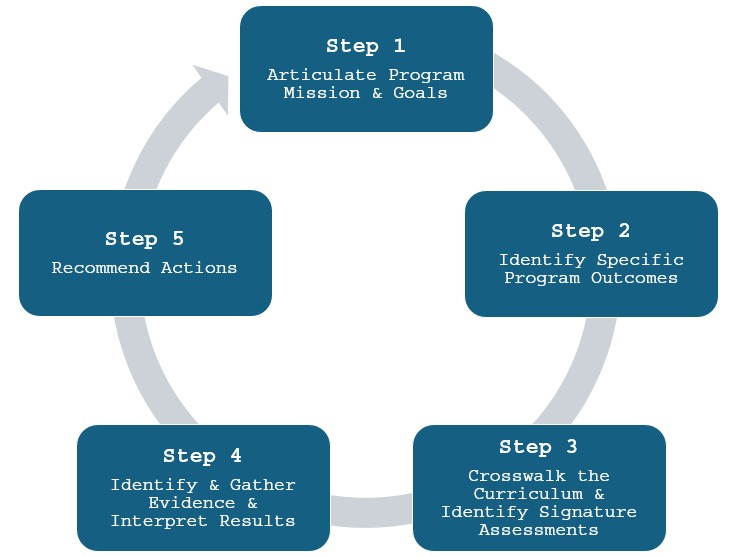
Assessment is the foundation of the program development and improvement cycle at any university or college and serves an important role in identifying a given program’s strengths and opportunities. As part of this process, faculty members collect and assess evidence associated with student learning and program outcomes and use the results to continuously improve the student learning experience.
The Vermont State University program assessment process includes several stages as shown in Figure 1.
Why is Program Assessment Necessary?
- Program assessment is a process that is required by Vermont State University’s accreditation body and certain program-specific external accreditors.
- The assessment process is a driver of continuous improvement in the quality of academic offerings.
- Program assessment adjusts curricula to the changing nature of disciplines and students.
- The process improves institutional retention by identifying where, and perhaps why, students choose to leave.
- Program assessment results are one measure of whether all students have equitable experiences in all modalities at all locations.
The Assessment Process
There are several different models for evaluating programs, but most involve small variations to these basic steps:
- The program or department defines their mission and learning goals.
- The program establishes student learning outcomes (SLOs) that align with the mission and learning goals.
- Student learning experiences are aligned with the student learning outcomes and methods of assessment are selected.
- The relevant evidence is collected and analyzed.
- An action plan to improve the program and student learning is created and implemented, based on the results of the analysis.